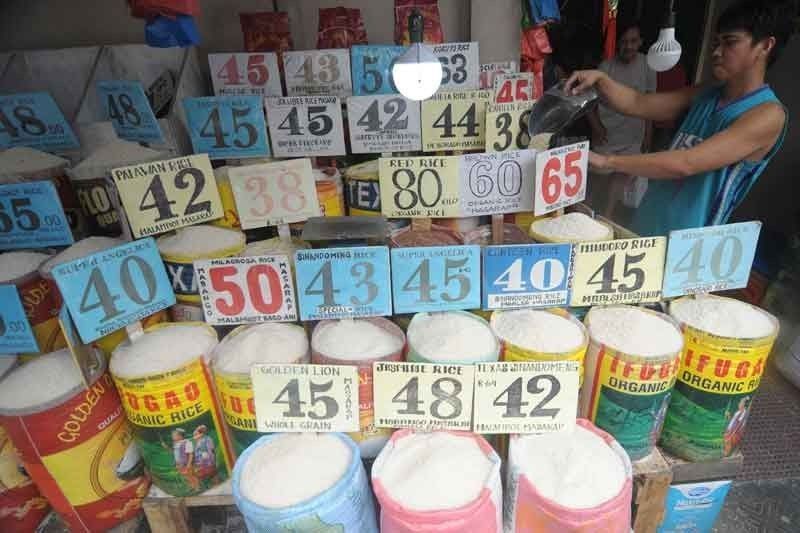Major price increase eyed for NFA rice

MANILA, Philippines — Consumers may have to prepare for a possible increase in the price of rice sold by the National Food Authority (NFA).
During yesterday’s budget hearing at the Senate, NFA administrator-in-charge Tomas Escarez said the food agency is proposing to increase the selling price of NFA rice from P27 per kilo to between P33 to P35 per kilo as it continues to incur losses.
“The NFA Council seems interested to increase the selling price locally. I have talked to them in the initial meetings and they are amenable. We have to sell our rice at a higher price,” Escarez revealed.
Based on their computations, the NFA would only break even if it buys palay at P20.70 per kilo from local farmers and, after processing, sell this at P33 per kilo. It would have a “slight profit” if it sells at P35/kilo.
“Our proposal is that we should at least earn a bit. Consumers are not exactly complaining with the current P38 per kilo of commercial rice and yet we are still selling at P27,” Escarez added.
Sen. Cynthia Villar, chair of the Senate committee on agriculture and food, admitted that the P27-per-kilo rate is causing NFA to lose money because this does not cover the overhead expense for milling and other processes needed to convert palay into the grains being sold in the market.
She added that during the milling process, only 65 percent is converted into rice grains.
Although she is not certain if the proposal will be approved, Villar urged the NFA to focus on local procurement and beef up its resources as rice importation, when quantitative restriction (QR) is removed, will soon become free-flowing.
The NFA stands to lose at least P160 million with the rice tariffication law that will effectively remove its regulatory and monitoring functions. About 400 employees doing the regulatory function will also be affected.
The Federation of Free Farmers (FFF) slammed senators for proposing the abolition of NFA and called instead for a thorough review of its mandate and functions.
Raul Montemayor, FFF national manager, said that instead of abolishing the NFA, which some lawmakers said will no longer have any significant role to play in terms of food security once the quantitative restrictions on rice imports are removed, senators should review its role to ensure effectiveness.
Even with a reduced role in the rice market, Montemayor said the agency could still help implement an e-trading system by which farmers in remote areas can sell their products directly to buyers in urban centers using cellphones and internet-based applications.
“The NFA’s warehouses and other assets can be used to process and store raw produce and transfer stocks from supply to demand areas in cooperation with private market players,” Montemayor said.
“NFA’s licensing and monitoring functions should be retained to ensure that speculators and unscrupulous importers do not manipulate the market at the expense of producers and consumers,” he added.
Last week, the bicameral committee adopted the Senate version of the rice tariffication bill that Villar sponsored.
Aside from removing QRs and replacing them with tariffs, the bill eliminates all the licensing and monitoring functions of NFA.
It also allegedly proposes to limit NFA functions only to maintaining buffer stocks for emergencies, which means that the agency will no longer be responsible for stabilizing prices by distributing cheap rice or buying from farmers when farm gate prices are low.
Ruben Presilda, FFF president, warned that the abolition of NFA would be dangerous to both consumers and rice producers.
“They are saying that open competition among importers and market players will ensure that rice prices will go down. What if that does not happen? What if large traders collude to manipulate prices of palay or rice to maximize their profits?” he argued.
“You need almost a billion pesos in imports just to supply the Metro Manila market with rice for one day. Only large financiers will have the resources to do this, and they can easily take control of the market specially since NFA will not be there anymore to monitor them and stabilize prices,” Presilda added. – With Cecille Suerte Felipe
- Latest
- Trending































